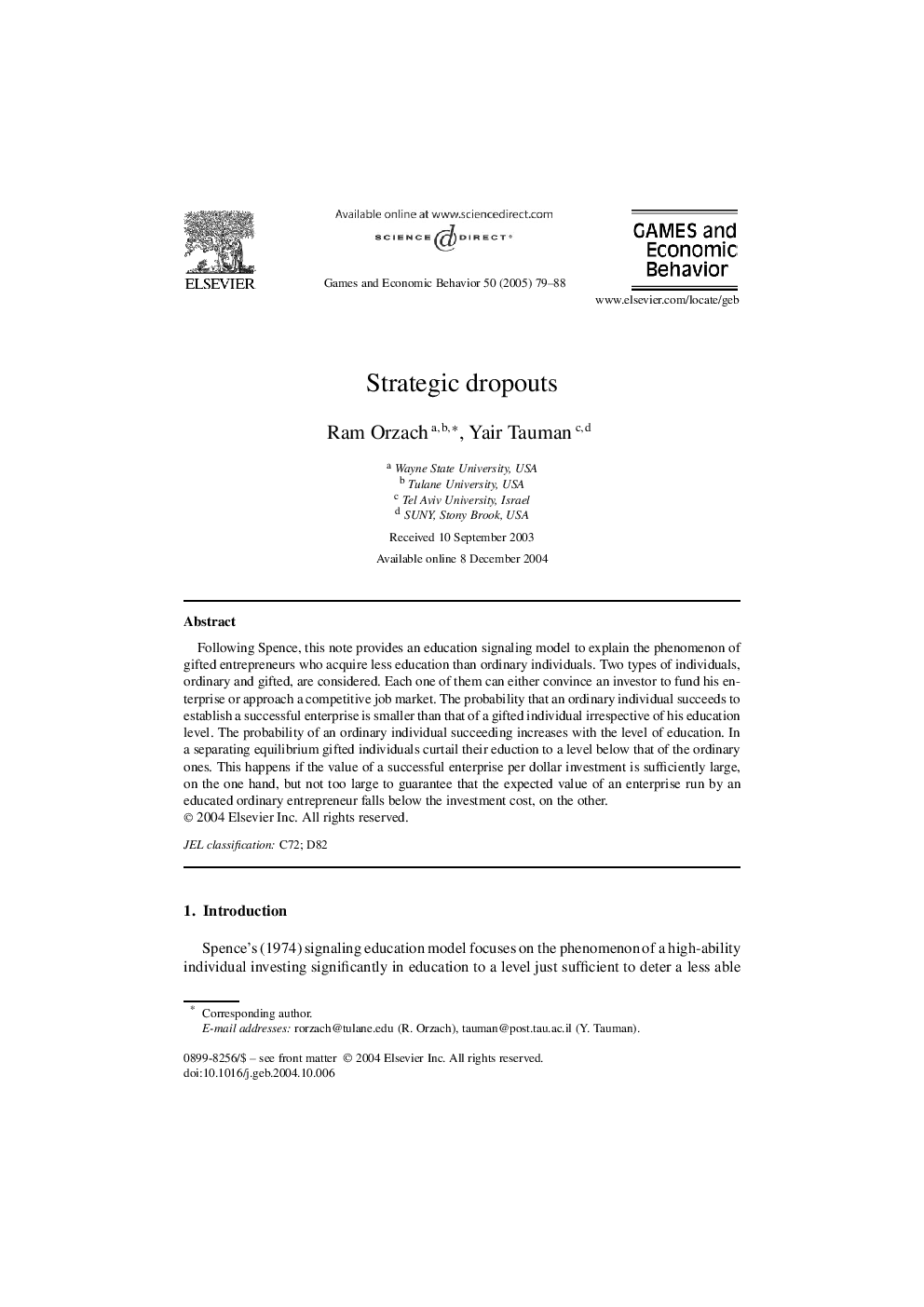| Article ID | Journal | Published Year | Pages | File Type |
|---|---|---|---|---|
| 9551845 | Games and Economic Behavior | 2005 | 10 Pages |
Abstract
Following Spence, this note provides an education signaling model to explain the phenomenon of gifted entrepreneurs who acquire less education than ordinary individuals. Two types of individuals, ordinary and gifted, are considered. Each one of them can either convince an investor to fund his enterprise or approach a competitive job market. The probability that an ordinary individual succeeds to establish a successful enterprise is smaller than that of a gifted individual irrespective of his education level. The probability of an ordinary individual succeeding increases with the level of education. In a separating equilibrium gifted individuals curtail their eduction to a level below that of the ordinary ones. This happens if the value of a successful enterprise per dollar investment is sufficiently large, on the one hand, but not too large to guarantee that the expected value of an enterprise run by an educated ordinary entrepreneur falls below the investment cost, on the other.
Related Topics
Social Sciences and Humanities
Economics, Econometrics and Finance
Economics and Econometrics
Authors
Ram Orzach, Yair Tauman,
